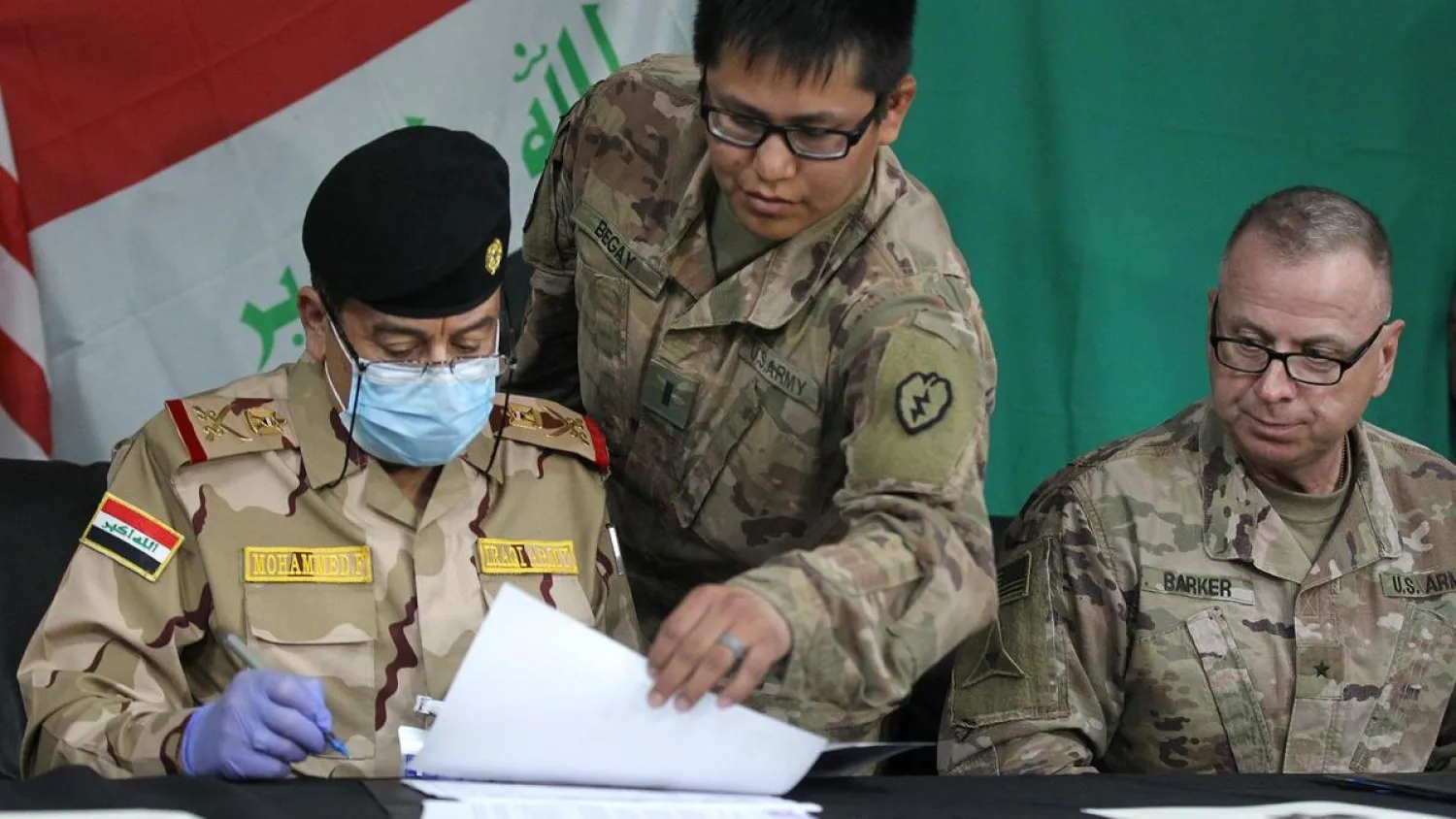US troops withdrew from all their military positions inside the presidential palaces north of Mosul, 400 km north of Baghdad, announced Nineveh Operations Command.
Shortly before that, Al-Iraqiya state television reported that the US-led international coalition forces handed over their headquarters in Nineveh Governorate to the Iraqi Defense Ministry.
A security source in Nineveh announced last Thursday the withdrawal of the US forces from Qayyarah airbase, the largest in the province 60 km south of Mosul. The forces only kept an artillery battalion and special forces soldiers at the base.
On Sunday, the US forces handed over K1 airbase to the Iraqi military, followed by the Qaim base near the border with Syria.
The official spokesman for the Iraqi Hezbollah Brigades, Mohammed Muhyei, described the US withdrawal from some bases as merely “repositioning after the strong blows from factions of the Iraqi people.”
The withdrawal of the US forces from some military bases in different regions of the country is a repositioning to search for safer areas, after they were subjected to strong military strikes by the factions of the Iraqi people who reject their presence, Muhyei told Deutsche Presse-Agentur (dpa).
Muhyei pledged that forces will continue to target the US forces wherever they are because the US presence in Iraq is illegal.
He warned the US forces against any aggression on the Iraqi people, or any attempt for a military coup against the political process, or targeting the Popular Mobilization Forces (PMF) leaders, or assassinating influential Iraqi national figures.
“The Iraqi people have the right to confront the US presence, but we disagree with others on the kind or timing of the strikes. Ultimately, it’s the people’s right,” said the spokesman.
Earlier, the New York Times revealed that the Pentagon has ordered military commanders to plan for an escalation of US combat in Iraq, issuing a directive to prepare a campaign to destroy an Iranian-backed militia group, including Iraqi Hezbollah, that has threatened more attacks against US troops.
Some top officials have been pushing for aggressive new action against Iran and its proxy forces, and “see an opportunity to try to destroy Iranian-backed militia groups in Iraq as leaders in Iran are distracted by the pandemic crisis [coronavirus] in their country,” reported NYT.









